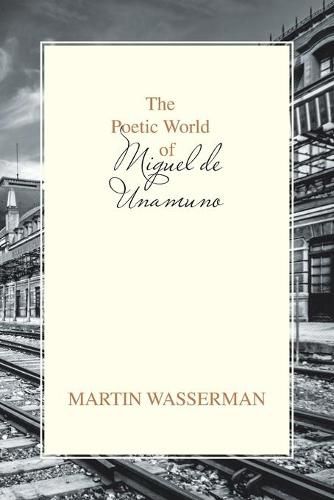Readings Newsletter
Become a Readings Member to make your shopping experience even easier.
Sign in or sign up for free!
You’re not far away from qualifying for FREE standard shipping within Australia
You’ve qualified for FREE standard shipping within Australia
The cart is loading…






This title is printed to order. This book may have been self-published. If so, we cannot guarantee the quality of the content. In the main most books will have gone through the editing process however some may not. We therefore suggest that you be aware of this before ordering this book. If in doubt check either the author or publisher’s details as we are unable to accept any returns unless they are faulty. Please contact us if you have any questions.
The Basque philosopher Miguel de Unamuno (1864-1936) was viewed by his peers as being one of the most significant writers and thinkers of the twentieth-century. As an author, Unamuno worked in all of the major literary genres: essays, novels, poetry and plays. However, according to the Mexican novelist and essayist, Carlos Fuentes, it was the philosophical essay which was his real forte. Yet Unamuno, towards the end of his life, provided a different-though not necessarily contradictory-perspective on his work. When Unamuno was asked to define himself, he stated that in all of his writings he should be considered nothing but a poet. Taking each of these statements both literally and seriously, what Professor Wasserman attempted to do in this work was to integrate the two assertions. He accomplished this task by first translating passages in Unamuno’s essays from Spanish to English and then by converting the prose translations into lines of poetry, thereby providing the reader with a lyrical and engaging picture of Unamuno’s philosophy of life.
$9.00 standard shipping within Australia
FREE standard shipping within Australia for orders over $100.00
Express & International shipping calculated at checkout
This title is printed to order. This book may have been self-published. If so, we cannot guarantee the quality of the content. In the main most books will have gone through the editing process however some may not. We therefore suggest that you be aware of this before ordering this book. If in doubt check either the author or publisher’s details as we are unable to accept any returns unless they are faulty. Please contact us if you have any questions.
The Basque philosopher Miguel de Unamuno (1864-1936) was viewed by his peers as being one of the most significant writers and thinkers of the twentieth-century. As an author, Unamuno worked in all of the major literary genres: essays, novels, poetry and plays. However, according to the Mexican novelist and essayist, Carlos Fuentes, it was the philosophical essay which was his real forte. Yet Unamuno, towards the end of his life, provided a different-though not necessarily contradictory-perspective on his work. When Unamuno was asked to define himself, he stated that in all of his writings he should be considered nothing but a poet. Taking each of these statements both literally and seriously, what Professor Wasserman attempted to do in this work was to integrate the two assertions. He accomplished this task by first translating passages in Unamuno’s essays from Spanish to English and then by converting the prose translations into lines of poetry, thereby providing the reader with a lyrical and engaging picture of Unamuno’s philosophy of life.